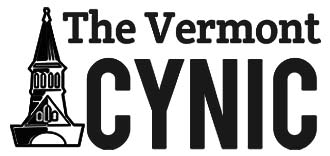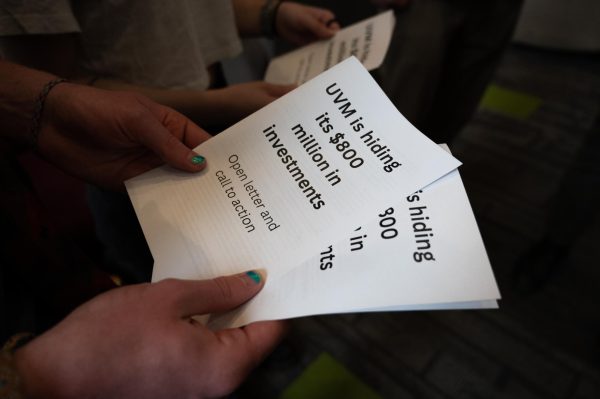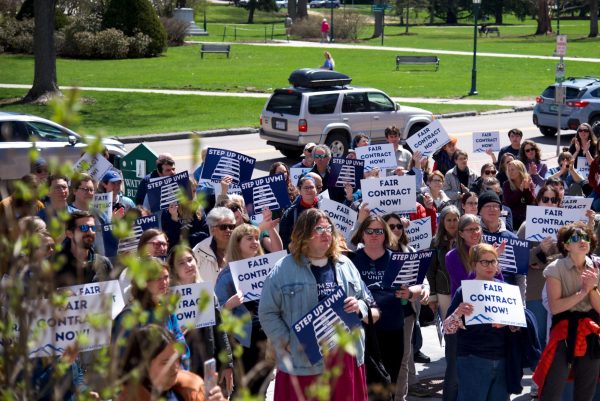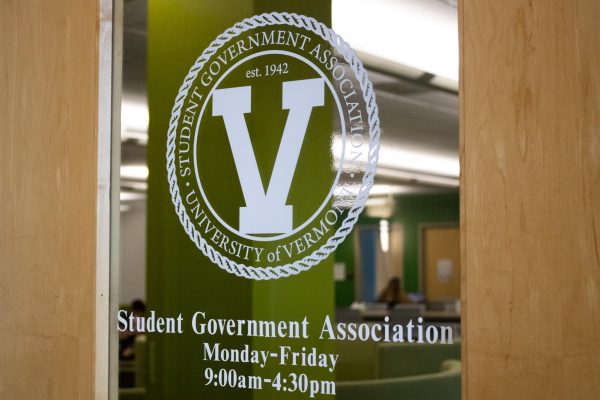Pulitzer prize winner talks food addictions

November 9, 2017
Best-selling author and Pulitzer prize winner Michael Moss spoke to a UVM audience about how the food industry hooks consumers.
The College of Agriculture and Life Sciences invited the “Salt Sugar Fat” author to speak at Ira Allen Chapel Nov. 1 for a discussion about the food industry.
His 2013 book is about American culture’s obsession with salt, sugar and fat and why we consume so much of these foods.
“I started writing about food [in 2008] and started the book ‘Salt Sugar Fat’ in about 2010. It came out in 2013 and since then I’ve been working on part two,” Moss said.
He has worked as an investigative reporter for the New York Times, The Wall Street Journal, New York Newsday and The Atlanta Journal-Constitution, Senior Vice President David Rosowsky said when introducing Moss to the stage for his talk.
His editor “saw this outbreak of salmonella, a pathogen, in peanuts” where “thousands of people were getting sick eating these peanuts,” Moss said.
As he began to look into this, he became increasingly more interested in the “trillion dollar food industry that we know very little about,” he said.
Moss said his goal for “Salt Sugar Fat” was to “be the first inside look on how [the food industry got us] to not just like their products, but to want more of them.”
It appeared to him that people had become dependent on food, and he said he wanted to know why.
Some of the biggest obstacles he faced when writing “Salt Sugar Fat” were obtaining documents about what food industries put into their products and why, as well as “interpreting those documents because a lot of them were technical,” Moss said.
After meeting with food scientists and food industry leaders, Moss said he realized salt, sugar and fat, “the unholy trinity,” were used in order to make food cheap, tasty and irresistible. Food industries use these three ingredients in abundance, he said.
“Most of the big shots—the scientists, and the marketers, and the CEOs—[don’t] eat their own products, they [know] better,” and can afford to buy healthier products, Moss said.
College students can eat healthier by cooking in their dorm rooms or joining a living program that cooks its own food, Moss said.
Overall, college students should not “obsess about weight gain” or the so-called “freshman 15,” he said.
Moss is currently working on a follow up to “Salt Sugar Fat” that will further explore the food industry’s tactics in keeping us hooked, he said.















